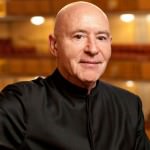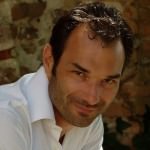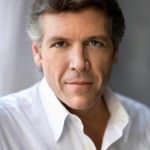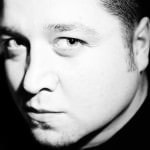In continuing to celebrate the bicentenary of German composer Richard Wagner, the National Symphony Orchestra, under the exceptional baton of Christoph Eschenbach, presents Act III of Wagner’s opera Parsifal. Joined by The Washington Chorus and three renowned solo singers in the lead roles – Nikolai Schukoff in the title role as Parsifal, Yuri Vorobiev as Gurnemanz, and Thomas Hampson as Amfortas – the NSO’s performance of Parsifal dazzled as the quintessence of audial imagery.

Following on the footsteps of the Washington National Opera’s successful run of Wagner’s famous Tristan and Isolde at The Kennedy Center, Musical Director Christoph Eschenbach and the NSO take on another of the operatic colossus’s masterpieces in the self-reflective Parsifal.
Though perhaps known best for his extremely dense four-opera cycle Der Ring des Nibelungen (The Ring of the Nibelung), Wagner had, in fact, spent a significant portion of his life – over 25 years – on composing Parsifal, and the work was the composer’s last completed opera before his death in 1883.
Wagner first conceived the idea for Parsifal in 1857, a few years after he had come upon the 13th-century epic poem Parzifal by German knight and poet, Wolfram von Eschenbach. The opera in three acts premiered at the Bayreuth Festpielhaus in 1882, a venue built by Wagner himself, and whose particular acoustics were tuned acutely to Wagner’s artist license.
Falling in line with Wagner’s other works of fantasy epics, Parsifal is sung in German and tells the story of the titular innocent fool whose destiny it is to save the kingdom of the Holy Grail Brotherhood of Knights, whose King, Amfortas, has been befallen by physical injury and emotional anguish after the death of his father by the hand of Klingsor, an evil sorcerer.
Performed in its entirety by the NSO, Act III of Parsifal opens upon a meadow on a springtime Good Friday, the rustling of the grass by a soft breeze reenacted with the fluttering of woodwind trills. It has been years since the events in Act II; Gurnemanz, a saintly old Knight of the Grail comes across the witch Kundry – voiced by Natalia Kojanova – now a penitent broken woman whose only line in Act III, “Dienen…dienen! (Let me serve!),” hauntingly floats across the stage from back behind the violins. The two come across Parsifal, who wanders in from left stage as if in a dream, unresponsive at first to Gurnemanz’s introductions, but soon the two recognize each other.
The role of Gurnemanz is voiced by Russian singer Yuri Vorobiev, making his debut with the NSO with this performance. Vorobiev undertakes the grounded but very substantial role of the elderly knight who serves as a foil of calmness and healing, and who guides Parsifal to his destiny after he recognizes those selfsame qualities in the changed young man. Indeed, Vorobiev is the sole voice in the first third of the performance, and who, with his tremulous bass, is both robustly compelling and calmingly pious as he allocutes to Parsifal the beauty of the surrounding nature.

Nikolai Schukoff reprises the role of the “pure fool, enlightened by compassion” – a role which has garnered him rave reviews for performances at the Munich State opera, Opera National de Lyon, and the Hamburg State Opera, among others. The praise is not without merit – Schukoff’s performance at The Kennedy Center is strikingly compelling.
Heightened, perhaps, by the fact that it comes no sooner than 30 minutes into the performance, Schukoff’s first line, “Heil mir! (I rejoice!)”) is rapturous – the tenor range astonishingly projecting. Performing without libretto, Schukoff with a voice tinged with both lament and wisdom recounts Parsifal’s self-revelations in his journey of solitary wandering. The simultaneous innocence and profundity of Schukoff’s Parsifal and his clear, ringing voice are magnetizing.

The trio journey to Amfortas’s castle where a procession vocalized by the male voices of The Washington Chorus urge the despondent Amfortas to do his duty as Guardian of the Grail. The American baritone Thomas Hampson is Amfortas, whose tormented cries of “Tod – Sterben! (Death! – To die!)”, is indicative of Hampson’s uncanny ability to fully channel the self-loathing and suffering of Amfortas’ character, who prays for his own death in place of absolution for his sins. A Gramophone Hall-of-Fame inductee, Hampson is a pleasure to listen to, ironically, in his translation of dark, desperate emotion to vocal outpouring, with nothing lost in between.

In Act III’s final moments, the brass leads the orchestra into the opera’s musical climax as Parsifal uncovers the Grail and performs its holy rite as the new King, as all kneel in worship. Female vocals from high above the stage join in as chorus and orchestra both hit and hold a poignant major chord, the musical resolution, before slowing into the illusory minor of the tragic suffering and returning to a forceful, but peaceful, major conclusion.
Running Time: 90 minutes, with no intermission.
National Symphony Orchestra: Celebrating Wagner at 200: Act III of Parsifal, in Concert has one remaining performance TONIGHT- Saturday, October 12, 2013 at 8 PM at The John F. Kennedy Center for the Performing Arts’ Concert Hall – 2700 F Street, NW, in Washington, DC. For tickets, call the box office at (202) 467-4600, or purchase them online.




